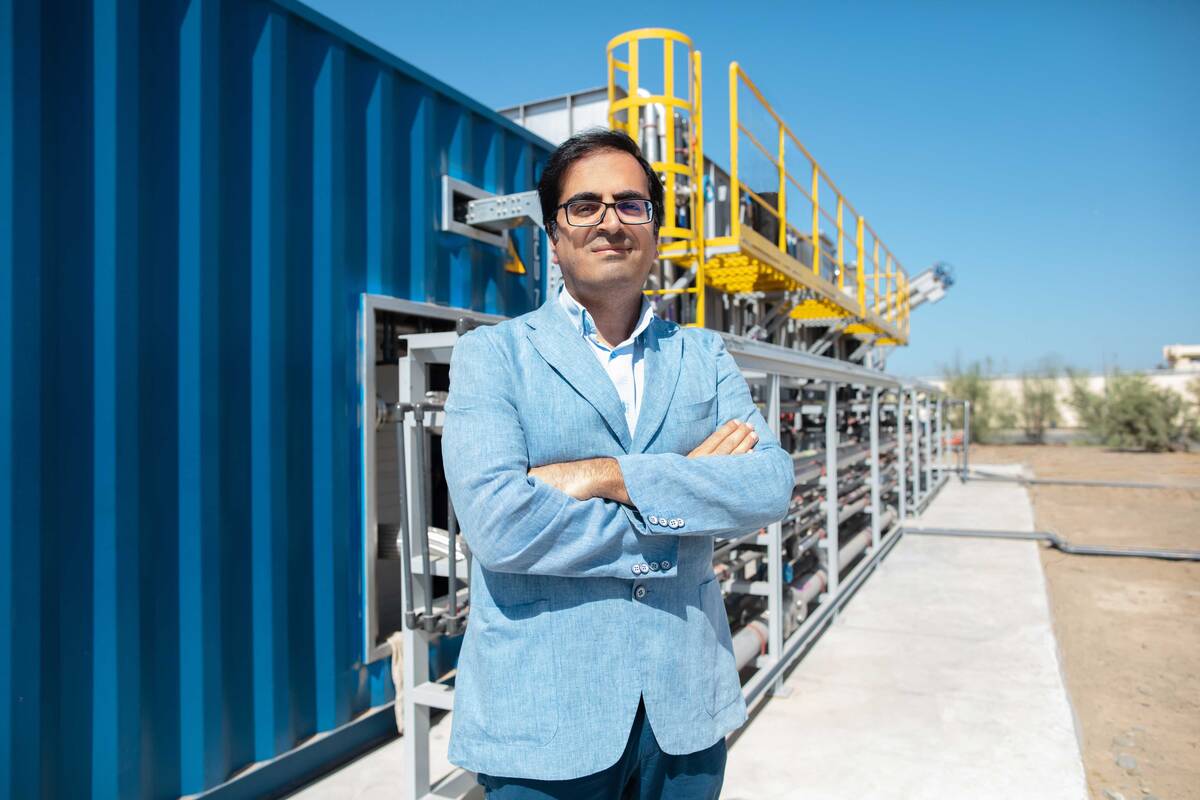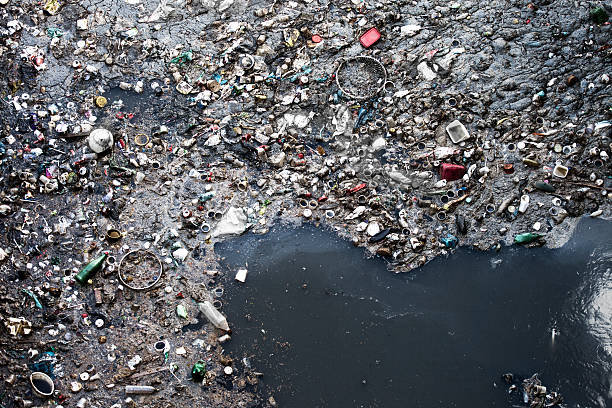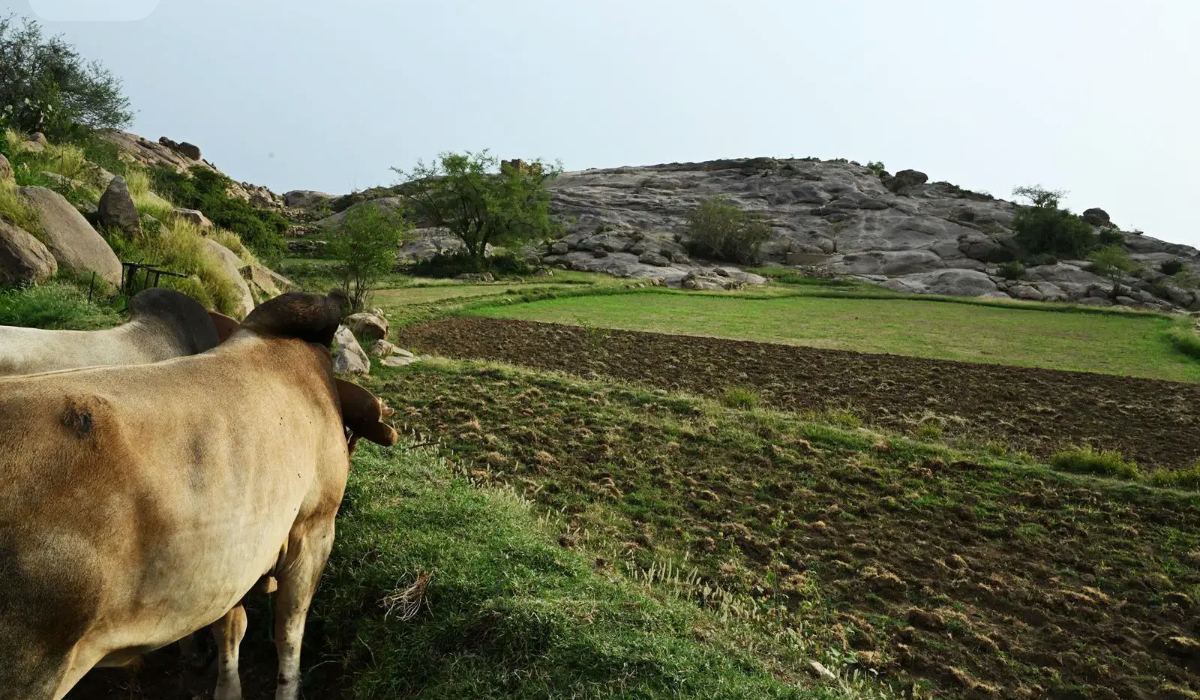JEDDAH: Saudi Arabia, represented by the Saudi Fund for Development (SFD), signed an agreement with the United Nations World Food Program (WFP) in Riyadh on Thursday to provide food services to 4 million displaced people in Syria.
Another $6 million agreement was signed to provide support for half a million refugees in Jordan, according to local media.
Yousef bin Ibrahim Al-Bassam, vice president and managing director of the SFD, signed the agreements for Saudi Arabia while Abdallah Al-Wardat, director of WFP Office for the GCC countries, signed on behalf of the WFP.
Al-Wardat said on the sidelines of the signing ceremony: “We are grateful for this contribution from the SDF which will help us to provide food aid to thousands of Syrians inside both Syria and Jordan. We have enjoyed close partnership with Saudi Arabia for more than four decades as Saudi Arabia is one of the key countries that supports the WFP projects and has thus far helped to save the lives of millions of people around the world.”
He noted that the two agreements are the second major cooperation agreement between the SDF and the WFP, adding: “Half the Saudi contribution value will be allocated to provide emergency food aid to thousands of displaced families inside Syria, including assistance for breastfeeding women, in addition to supporting the school feeding project for children as well as for skills training courses on agricultural projects. The other half will be used to provide food aid for refugees in Jordan, including support for the school feeding project there.”
Meanwhile, the Saudi National Campaign (SNC) in support of the Syrian people distributed schoolbags and stationery to 747 Syrian students in a Jordanian refugee camp in Irbid.
This comes within the framework of the 11th session of the SNC’s educational program entitled “My brother, with science we will build it,” which includes all age groups from the primary to the secondary study levels.
The campaign’s regional director, Badr Al-Samhan, said that the program aims to distribute 150,000 schoolbags containing stationery materials to Syrian students in Jordan in cooperation with the Jordanian Ministry of Education and the Jordanian Charity Organization for Arab and Islamic Relief, Development and Cooperation.
Al-Samhan pointed out that the campaign office in Jordan is proceeding in accordance with the plans that have been prepared in advance so that distributions can include all of the children of refugees. He emphasized that the Saudi campaign will continue to provide humanitarian support to refugees in Jordan, as well as in Turkey and Lebanon to alleviate their suffering and provide a decent life for them.
In another development, Abdullah Al-Rabeeah, adviser to the Royal Court and Supervisor General of the King Salman Center for Relief and Humanitarian Aid, met with Christos Stylianides, member of the European Commission in charge of Humanitarian Aid and Crisis Management, in Brussels on Wednesday evening.
Al-Rabeeah briefed Stylianides on the humanitarian efforts extended by Saudi Arabia through its center to a number of countries including Yemen and Syria.
Detailing relief measures undertaken by the Kingdom, Undersecretary of the Interior Ministry Ahmed Al-Salem said that the Kingdom has received 2.5 million Syrian refugees and 500,000 Yemenis so far, and confirmed that the government has provided all of the relevant services to them.
In a speech at the 2016 Crans Montana Forum which kicked off in Brussels Thursday, he noted that Saudi Arabia ranks third worldwide in terms of the amount of relief and humanitarian aid given to needy and displaced people across the globe.
Al-Salem went on to highlight the Kingdom’s efforts in relief and humanitarian field, noting its achievements over the past four decades in which more than $139 billion has been given to the needy throughout the world, without discrimination based on their religious or ethnic affiliations.
Additionally, thousands of Syrians and Yemenis have entered the Kingdom as guests, and that the government has provided them with all of the necessary means of care to create decent lives for themselves and their families, including the ability to work and free access to health care and education.
Saudi Arabia to provide food aid for 4m Syrian refugees through WFP
Saudi Arabia to provide food aid for 4m Syrian refugees through WFP

How experts in Saudi Arabia are harnessing the power of microbes to treat wastewater

- KAUST researchers are using the microorganisms found naturally in wastewater to clean it and extract valuable resources
- The system reduces energy use and avoids sludge buildup common in traditional wastewater treatment methods
RIYADH: What if the answer to wastewater treatment was in the water itself? At King Abdullah University of Science and Technology, a team led by Professor Pascal Saikaly is harnessing the natural power of microbes found in wastewater — not just to clean it, but to generate energy and create valuable resources.
Rather than relying on outdated, energy-intensive systems, Saikaly’s team is developing innovative, nature-based solutions that turn waste into a tool for sustainability. Their key technology? A microbial electrochemical system that takes advantage of how certain microbes “breathe.”

Some microbes are capable of a process called extracellular electron transfer — moving electrons outside their cells to solid surfaces. Under the right conditions, this creates a small but useful electric current.
“At the anode, think about oxidation, you basically release electrons. At the cathode, it’s more like uptaking the electrons,” Saikaly told Arab News. “You have organisms that release the electrons at the anode side. At the cathode side, you have organisms that can capture these electrons.”
This process — using natural microbial activity and controlled conditions such as pH, electrode potential and substrate type — helps to treat wastewater while recovering energy and chemicals such as methane.
“You’re not adding any more energy to the whole process, so we reduce energy consumption,” Saikaly said.

Unlike conventional wastewater treatment methods, which were developed more than a century ago and rely heavily on aeration, these new systems are far more efficient. According to Saikaly, current methods require 0.6 kilowatt-hours of energy per cubic meter of treated water and produce large amounts of residual sludge.
“The technology that we are currently using generates a lot of residual solids,” he said. “In any biological treatment process, you produce waste. And this waste, we call it residual waste or waste activated sludge, we need to dispose of it.
“This means there is an additional cost that we have to pay for in the treatment process. So, it is energy intensive and generates a lot of residual solids.”
The KAUST team’s microbial system not only removes pollutants but, under the right operation, can also fix carbon dioxide — transforming it into methane gas or acetate, both of which can be used as renewable fuels.
“You can operate it without microorganisms and there you produce hydrogen, or you operate it with microorganisms and you can generate methane gas or other types of substrates,” Saikaly said.

The goal is to move from simply treating waste to recovering valuable resources from it. “All the biotechnology that we developed falls under this principle,” Saikaly said. “Treat the waste with simultaneous recovery of resources. That’s our principle.”
Another innovation Saikaly’s team has developed is a technology called microbial chain elongation. Designed as an alternative to landfilling organic waste, this process converts food and dairy waste into high-value chemicals rather than low-value methane.
“According to Vision 2030, all of these landfills will be shut down and waste should be diverted away from landfills by 2030 or 2035,” Saikaly said. “This means there is an urgent need for an alternative solution for this huge amount of organic waste that is being generated.”

Among the byproducts of this process is casaene — a protein-rich substance containing 16 essential amino acids — suitable for use in aquaculture and poultry feed.
“We’re in discussions with the aquaculture program at KAUST,” Saikaly said. “And also we are in discussion with Sipchem, which is a petroleum chemistry company. They also want to use our products to produce polymers. There’s a big window of applications that is much, much broader and has a higher value than methane gas.”

The team is also behind a compact, mobile wastewater treatment plant — the aerobic granular sludge gravity-driven membrane system — developed in partnership with former KAUST scientist Mohammed Ali. It treats domestic wastewater without the need for energy-intensive aeration or pumping, making it ideal for rural or remote locations.
The system, already in use in Rabigh, Saudi Arabia, serves up to 2,000 people and is designed to process 150 cubic meters of wastewater per day.

These innovations are part of a broader push by Saikaly and his team to rethink how we deal with waste — not as something to dispose of, but as something to transform. And while many of these technologies are still a few steps from commercial deployment, they are already showing how science and sustainability can go hand in hand.
“We want to think about waste not only as to treat and dispose, but as a waste that we can use to recover resources,” Saikaly said.

Red Sea Film Foundation champions Saudi storytelling at Saudi Film Festival

- Two short films — “Afen” by Nawaf Alkinani and “Hello My Dear” by Ahmad Salam — will screen outside the official competition lineup
JEDDAH: The Red Sea Film Foundation is participating in the 11th edition of the Saudi Film Festival, running from April 17-23 at the King Abdulaziz Center for World Culture (Ithra) in Dhahran, as part of its ongoing efforts to support the Kingdom’s film industry.
Through its flagship initiative, the Red Sea Fund, the foundation will present two awards of SR 25,000 ($6,668) each for outstanding Saudi film projects in the Development and Production categories.
This year, five foundation-backed titles are screening at the festival, including three films selected for the official competition: “Hobal” by Abdulaziz Alshlahei, “Songs of Adam” by Oday Rasheed, and “My Driver and I” by Ahd Kamel.
Two short films — “Afen” by Nawaf Alkinani and “Hello My Dear” by Ahmad Salam — will screen outside the official competition lineup.
The foundation will also take part in the SFF’s Production Market, showcasing its key initiatives: the Red Sea Souk, Red Sea Labs, and the Red Sea Fund, all of which, the foundation said in a press release, “provide filmmakers with essential financial, creative, and logistical support across all stages of the filmmaking journey.”
Since its establishment in 2019, the Red Sea Film Foundation has, it stated, “played a central role in shaping the region’s cinematic landscape through a range of local and international initiatives spanning production, distribution, education and training. Its mission continues to focus on nurturing a new generation of storytellers and contributing to a thriving, sustainable film ecosystem across Saudi Arabia, Africa and Asia.”
The Saudi Film Festival was founded in 2008 and is the Kingdom’s longest-running cinema-related event.
Visit the Ithra website for showtimes.
In Asir, farmers use cattle and plow to keep agricultural heritage alive

- Many farmers maintain that despite the available modern equipment, traditional cattle plowing benefits the soil in ways machinery cannot
RIYADH: In Saudi Arabia’s Asir region, farmers still use cattle and hand-crafted tools to tend their land, maintaining traditional techniques passed down through generations, SPA reports.
The farmers carefully prepare their soil during seasonal periods, using either modern machinery or traditional wooden plows.
This process supports soil health for planting seasons, especially on terraced farms where rugged terrain or limited access roads make modern equipment less practical.

During a recent field visit, SPA correspondents interviewed farmers and regional experts about these enduring practices.
Farmer Mesfer Al-Qahtani and Dr. Abdullah Al-Moussa, a heritage sciences researcher focused on the region’s agricultural calendar, discussed the role of celestial movements in Asir’s farming calendar.
“Farmers in Asir rely on celestial movements and weather patterns to determine optimal plowing and planting times,” Al-Moussa said.

He noted key seasons, including Al-Dhira’ayn, which signals the start of spring planting; Al-Thuraiya, ideal for corn and millet cultivation; and Al-Han’a, a critical period for soil preparation before autumn.
Al-Qahtani, who plows using cattle and ancestral methods, emphasized the deep connection between astronomical knowledge and agricultural practice.
“We track the seasons and heed our elders’ wisdom. We know when to plow the land and when to let it rest,” he told SPA.

He explained that traditional plowing relies on cattle and the plow, adding, “This is not merely technique — it is a lifestyle where we honor the earth and understand its rhythms of giving and resting.”
According to farmer Abdul Karim Al-Shehri, the traditional plowing process begins with securing two bulls using a wooden neck harness called Al-Nir (yoke). This connects to Al-Sikka — a sharp iron plowshare attached to a wooden plow that cuts and turns the soil.
He also outlined the traditional tools that have shaped Asir’s agricultural practices for generations. The plow, typically made from jujube or juniper wood, holds the iron blade that breaks the soil. Farmers have relied on the handheld wooden Al-Madra to guide the plow’s direction during tilling.
The Ruba’a (clevis) or Al-Dimad (drawbar) system connects cattle to the plow, ensuring the optimal distance between the animals for effective field work. This system uses a wooden harness positioned over the bulls’ necks, with 70-cm wooden arms extending through four holes and secured with leather or palm fiber ropes.
Farmer Abdullah Abdulrahman Al-Asmari explained that plowing is usually a team effort. Two farmers work together: One steadies the plow while the other, known as Al-Thari (sower), scatters seeds evenly.
After plowing is complete, the Makam or Al-Madsam (harrow) — a wide, two-meter piece of wood pulled by bulls or camels over the freshly turned earth — is used to level the soil and protect seeds from birds and harsh elements such as wind and heat.
“While we must embrace progress, we cannot abandon Asir’s agricultural heritage,” Al-Asmari said. “Teaching younger generations about our traditional farming methods is essential — these practices were not merely labor but represented the entire way of life that sustained our ancestors for centuries.”
The process involves four distinct phases designed to maximize crop yield and nutritional quality: Initial soil turning, deeper breaking for improved aeration and water absorption, directional plowing to prepare for seeding, and finally, careful seed distribution and coverage.
Many farmers maintain that despite the available modern equipment, traditional cattle plowing benefits the soil in ways machinery cannot.
They believe that it provides greater control using more natural methods while preserving soil fertility and reducing fossil fuel dependence.
In Asir, traditional plowing is more than farming — it embodies cultural identity and sustains people’s timeless bond with the land.
153 Arabian oryx returns to Saudi wilderness

- The authority also highlighted a particularly encouraging development in its conservation efforts: Eight new oryx births have been documented within the reserve
RIYADH: The King Salman bin Abdulaziz Royal Reserve Development Authority has reintroduced 153 Arabian oryx to their native habitat across the Tubaiq, Al-Khanfah, and Hurra Al-Hurra regions of Saudi Arabia.
The initiative forms part of the authority’s strategy to restore biodiversity and reestablish endangered species in their natural environments.
The Arabian oryx, which belongs to the bovine family, is classified as an endangered species.

The distinctive animal, recognizable by its powerful build, straight elongated horns, and striking white coat with black facial markings, grazes on vegetation throughout the reserve. It forages during early morning and evening hours to avoid the intense desert heat.
The authority also highlighted a particularly encouraging development in its conservation efforts: Eight new oryx births have been documented within the reserve.
The first birth, recorded in 2022 in the Tubaiq region, represented the first successful reproduction of the species in its natural habitat in 90 years.
The endangered species resettlement programs reflect the authority’s commitment to ongoing work supporting ecological balance, enriching biodiversity, and preserving species whose numbers have declined due to environmental factors and loss of vegetation cover.
Transavia France will launch flights to Madinah

- CEO of the Air Connectivity Program Majid Khan described the development of air connectivity between France and Saudi Arabia as a fundamental pillar of the National Tourism Strategy
RIYADH: The Air Connectivity Program, in partnership with the Al Madinah Region Development Authority, has announced the expansion of Transavia France’s travel services to Saudi Arabia.
Beginning in October, new routes will be launched from Paris-Orly, Lyon, Marseille, and Toulouse to Madinah.
This expansion complements the successful launch last year of routes connecting Paris-Orly and Lyon with Jeddah, enhancing air connectivity and reflecting the growth in travel demand between the two countries.
It also underscores the Kingdom’s position as a major destination and supports the tourism goals of Saudi Vision 2030 by increasing the number of tourists to the Kingdom.
CEO of the Air Connectivity Program Majid Khan described the development of air connectivity between France and Saudi Arabia as a fundamental pillar of the National Tourism Strategy.
He highlighted that this expansion will help capitalize on the significant opportunities in France’s Umrah market, while supporting the Kingdom’s tourism objectives.
CEO of Tibah Airports Operation Co. Sofiene Abdessalem stated that the selection of Madinah among Transavia France’s new destinations confirms the city’s religious and cultural status, while underlining the efforts made to enhance its presence on the international air connectivity map.
Chief Commercial Officer of Transavia France Nicolas Henin said the airline is excited to start flights to Madinah and strengthen its ongoing partnership with Saudi airports.



















